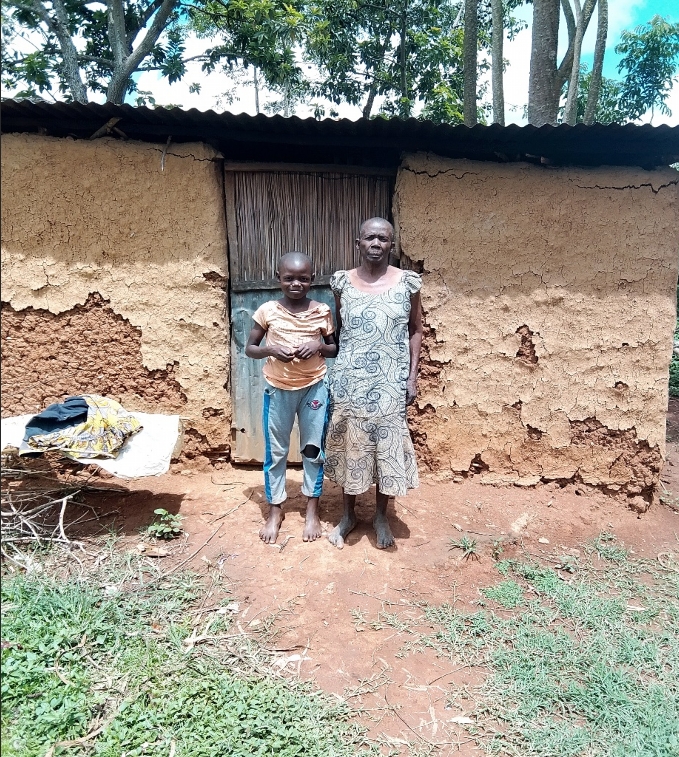The struggles of children orphaned by HIV paints a blurry future for them. Their future must be saved.

In the rural areas of Siaya county in Kenya where HIV/AIDS infections remain alarming, a generation of children is growing without parents. These children are often forgotten, left to wrestle with the mystery of existence, life and death.
Wendy now 13 years old, is a victim of HIV/AIDS from Siaya county in Kenya. Just six months after she was born, her mother, the only parent, succumbed to this deadly disease leaving her at the mercies of her old grandparents.
Wendy’s mother was a resilient small-scale businesswoman in Nairobi who sold groceries and fruits. When illness struck, Wendy’s mother decided to relocate back to her village to seek help. Her hope of getting better didn’t materialize, instead she succumbed to it.
The HIV/AIDS tragedy never ends with the death of the infected person. Its effects continue through the orphaned children. In this case, Wendy unknowingly contracted HIV/AIDs during birth through mother-to-child transfusion.
Left with a sickly infant, with little knowledge about the disease, which in the African local setup is always assumed to be caused by witchcraft, things were not easy for Wendy’s grandparents. They tried all they could to curb the witchcraft sick theory but it didn’t help until they got to the hospital where Wendy was diagnosed with HIV/AIDs. She was immediately put on medication.
In the wake of this profound loss, Wendy found herself in the care of her grandparents. Their love and dedication became her anchor, but sorrow struck again when her grandfather fell ill and passed away not long after. This left Wendy solely in the care of her ageing grandmother, a woman of great resilience but diminishing strength.
For families and children who are caught in the HIV/AIDS pandemic, poverty, lack and struggle is their part of everyday life. Most aged people who become guardians hardly have the capacity to produce nor meet basic needs on their own. Most orphaned kids they look after are far too young to be working to produce basic needs for their families. And the burden, at the end of the day, rests with the grandparents, who in a true sense, are also dependents.
Helpless with little hope about the future of her granddaughter, Wendy’s grandmother who has advanced age and struggling with frequent illness due to her frail health finds it difficult to give Wendy the all-round support she needs. This has made them depend on well-wishers, a precarious and unreliable lifeline that often fall short of meeting their basic needs.
Sited besides their cracked mud house, gazing at the mounds that marks the remains of Wendy’s mother and her grandfather, just near their house.
“My daily prayer has always been that Wendy gets a well wisher who can support her till she is in a position to support herself. Because my health keeps deteriorating daily, I might not be there tomorrow, and with the existence of independent knowledge in this community about HIV/AIDs, she is prone to exploitation such as sexual violence as well as physiological harm from stigmatization and discrimination.”
“Nevertheless, Wendy is forced to neglect her studies as she struggles with her health care, nutrition and social protection, the what might become of her future?” Wendy’s grandmother asked.
We become people through others, so with the help of a well-wisher, Wendy’s grandmother is certain that even in her absence, Wendy will be able to walk into the future that felt impossible, breaking the cycle which seems inevitable.
